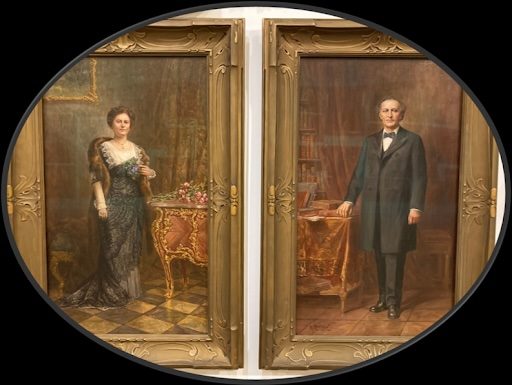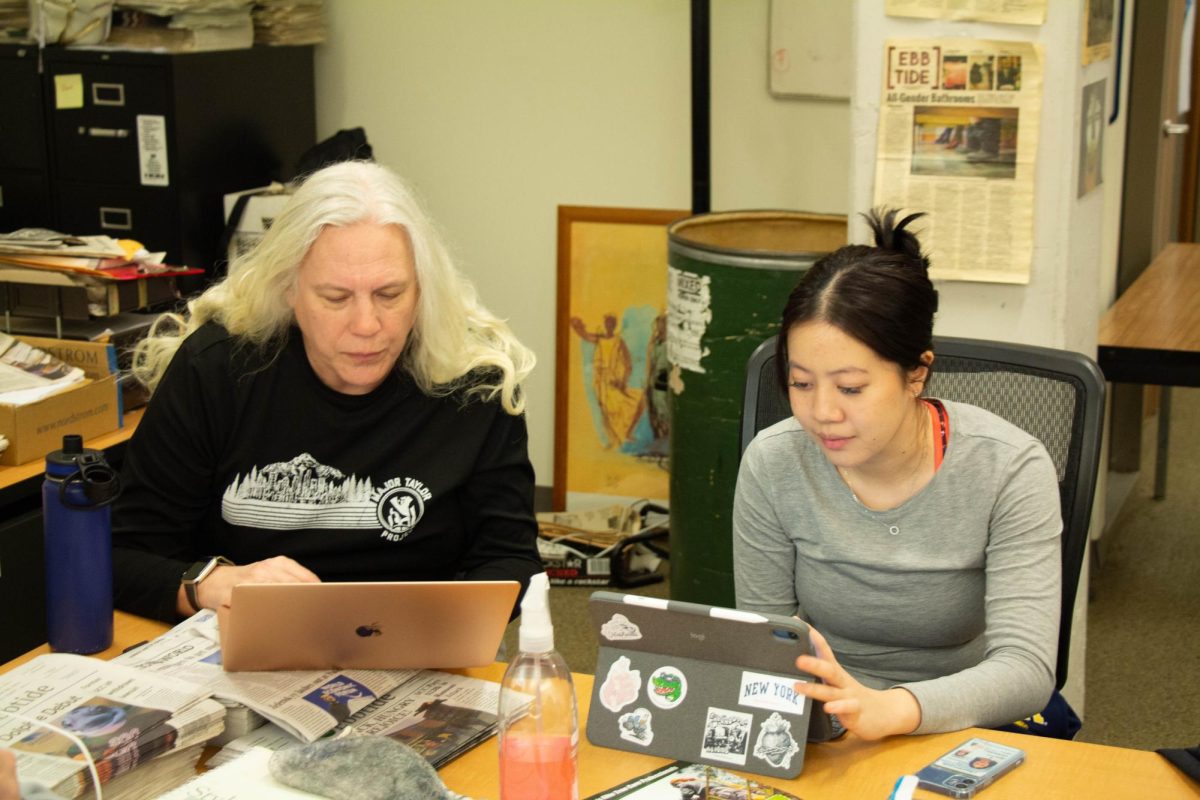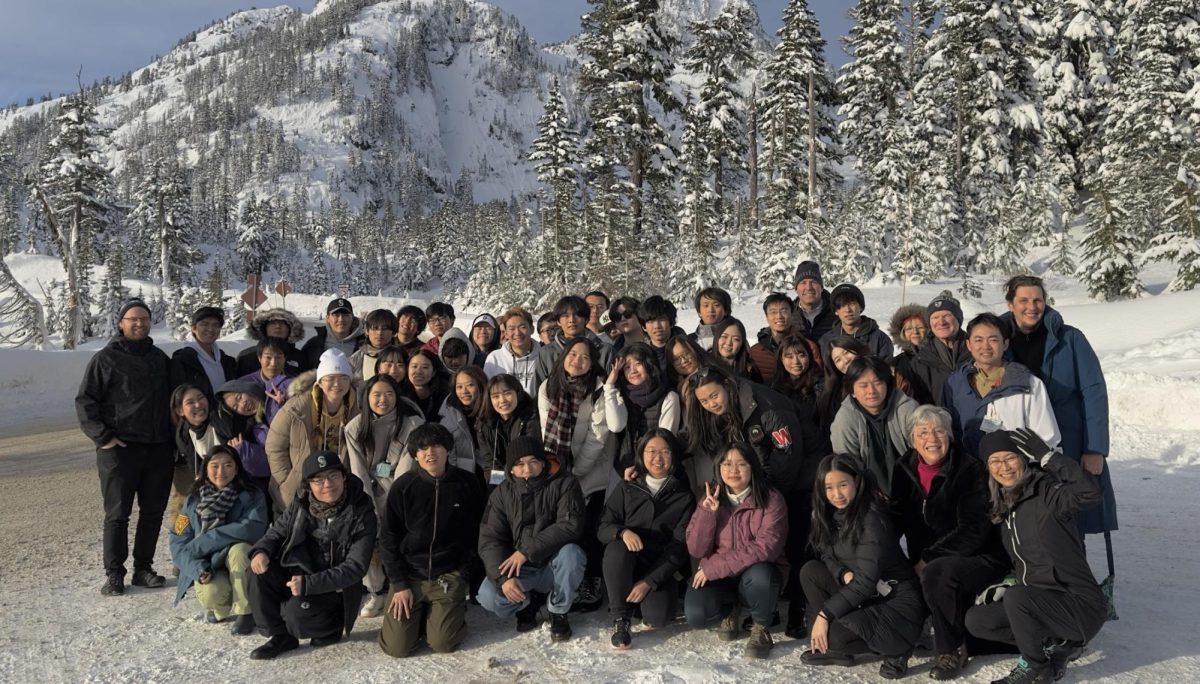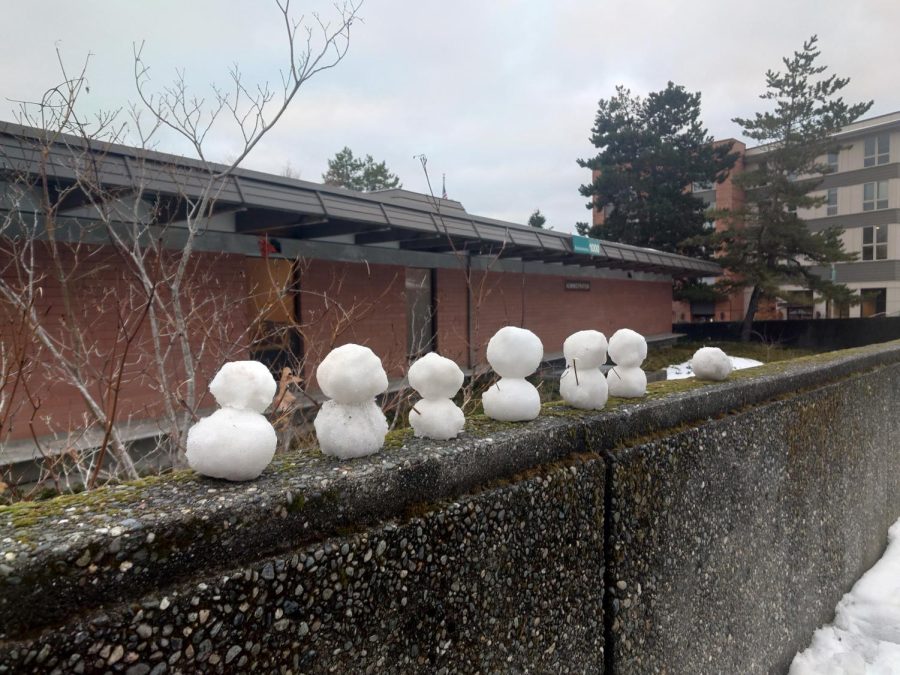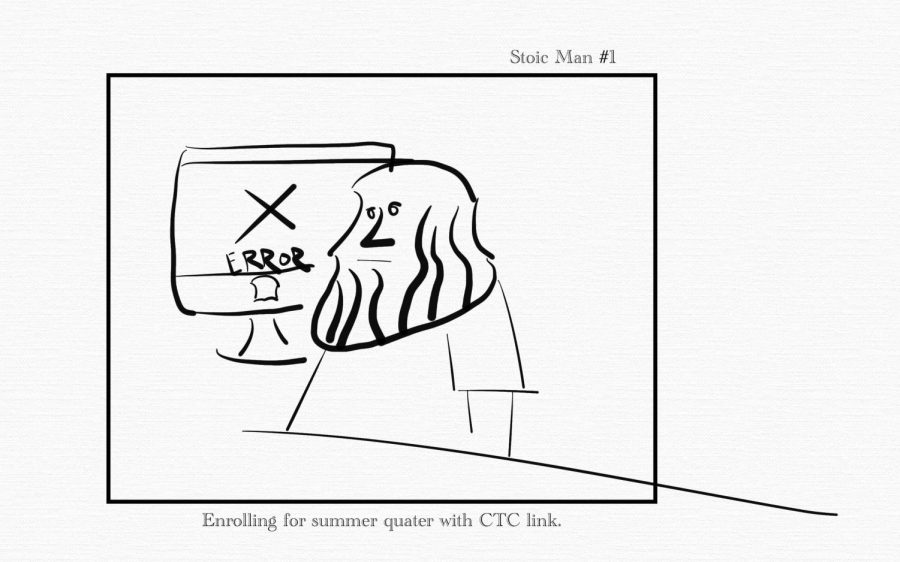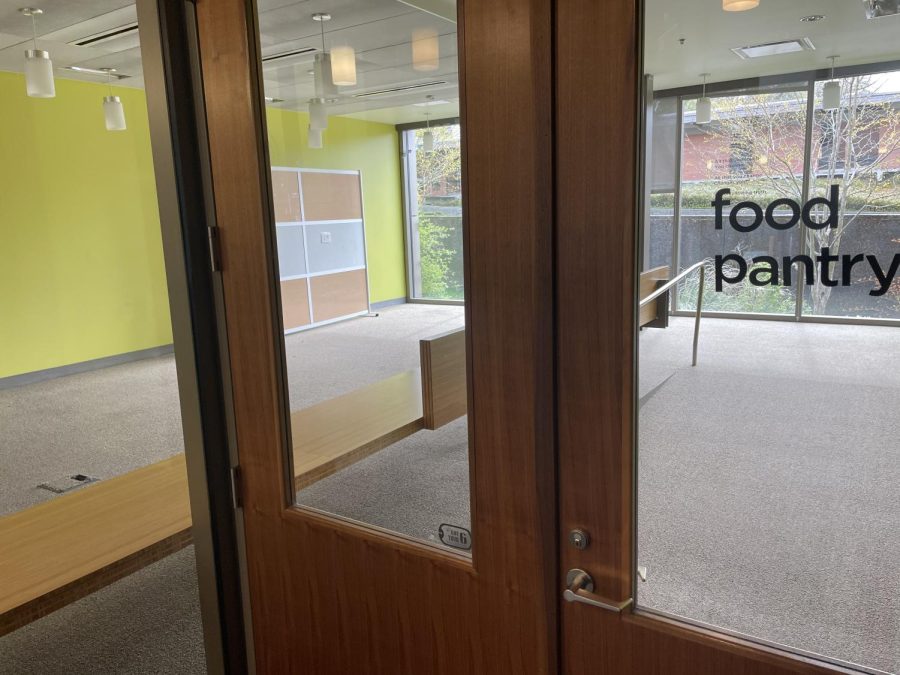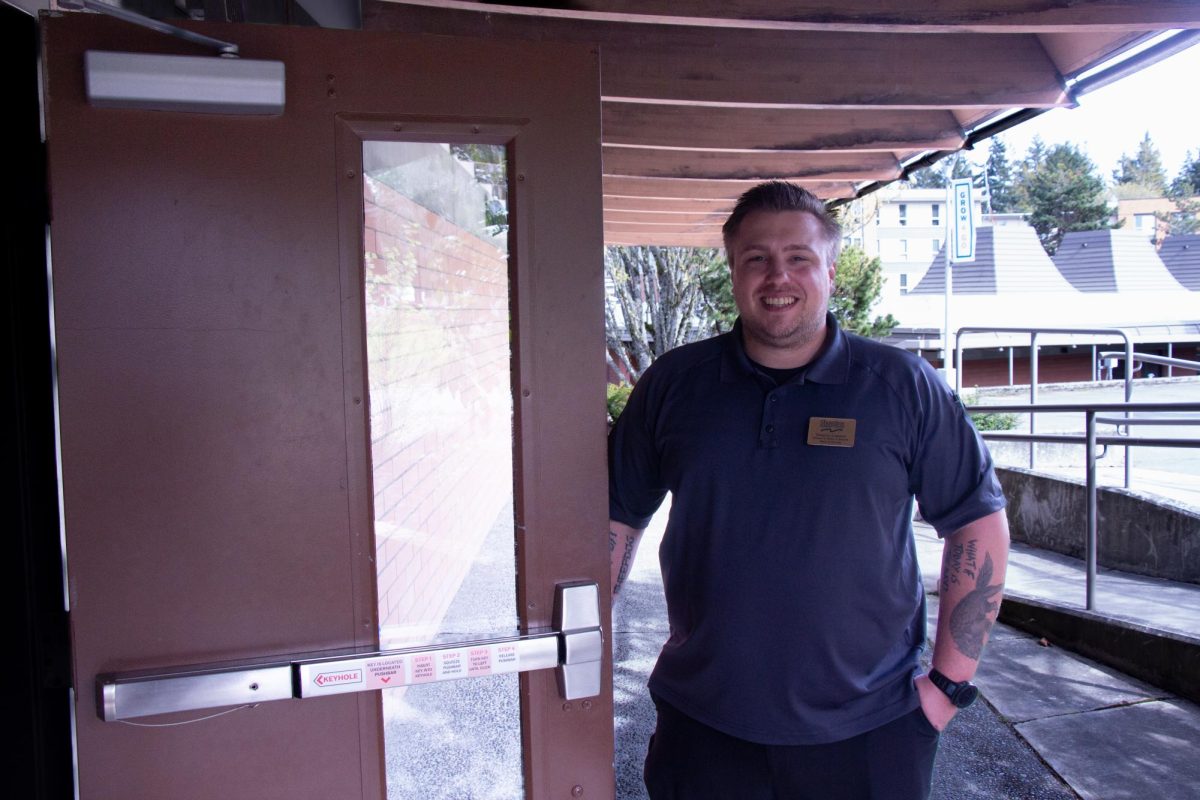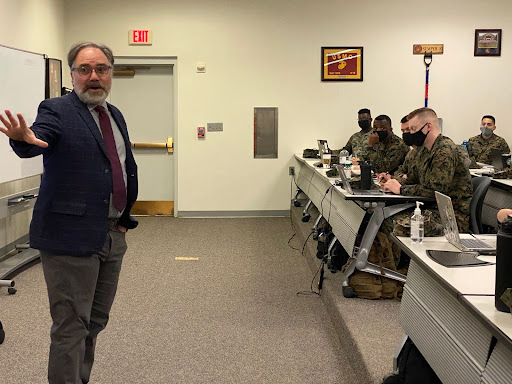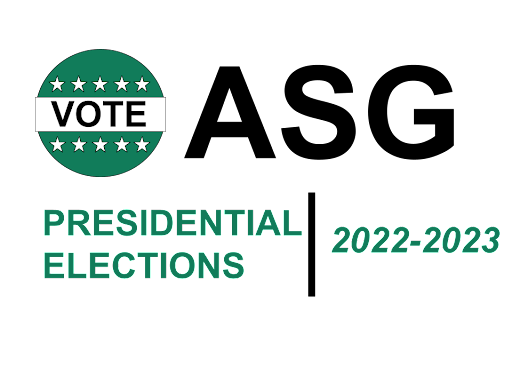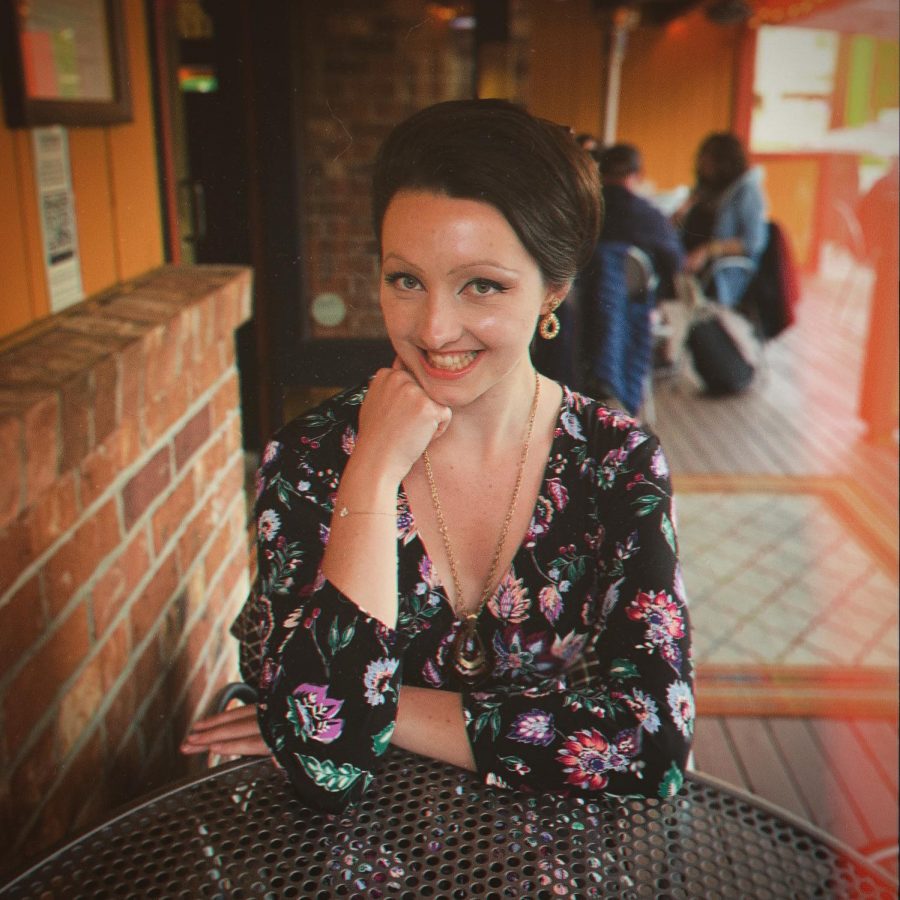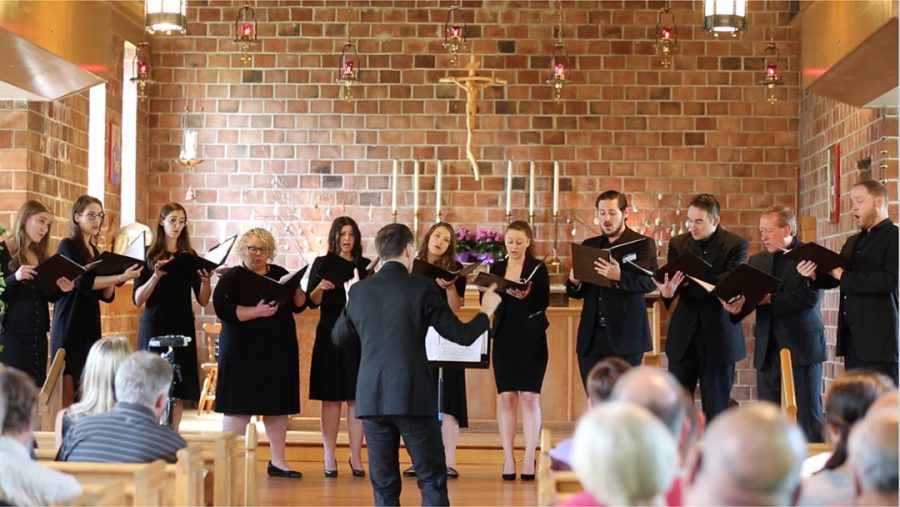FROM VIETNAM TO WASHINGTON. NEXT STOP, SPACE.
Harry Phan wants to build a spaceship for interstellar colonization.
He says he’s not at the construction phase yet, but he’s making progress, taking classes to become an astronautical engineer. It’s a difficult task, but he seems optimistic about his chances. Phan is an aspiring rocket scientist and SCC student who developed an interest in politics and helping people. He ran for ASG president on a platform of renting out skateboards for student transportation and adding lake elements to campus.
The move to run for president may have appeared to be an odd decision, especially coming from someone like Phan. Phan is quiet, introverted and has described himself as being similar to Dan Brown’s “Da Vinci Code” because he is difficult to read, and he doesn’t always understand the code himself.
Phan agrees to meet me outside of the 2800 building at 10:30 a.m. and arrives early dressed in a polo shirt and black hoodie, sitting at a picnic table hunched over his work. He is completely unrecognizable from the crisp business suit-wearing man who sported a stylish fedora during the presidential forum. This man is all about work.
Phan begins by talking about his past: he grew up in Vietnam in what he describes as a loving, middle-class family. He learned English partly from watching sci-fi movies about space travel, but his true inspiration was Elon Musk, the eccentric CEO of space transport company SpaceX.
Phan says his family are “good people,” but he’d rather talk about school. Education in Vietnam is difficult, and Phan goes on to say that some students graduate from school but can’t find jobs.

Musk opened up new opportunities for Phan, showing what could be possible. Phan decided to major in astronomical engineering in hopes of following a similar path. He was unable to pursue the major he wanted in Vietnam, so he decided to look abroad for his studies. With financial backing from his parents, he moved his studies a world away to Washington.
At first Phan attended Spokane Community College, which he described as being cold and lonely compared to his warm and densely populated home country.
Phan heard about Shoreline Community College from a friend. In a visit to SCC, he found students his own age and a warm, wooded campus. He switched to SCC, and he never looked back.
Phan studied, made friends and even joined the Hiking Club to explore the Northwest wilderness.
His most memorable moment was when he reached the peak at the end of the trail. Walking through the snow and cold, it occurred to him that this must be what it is like to be the first one to live on another planet.
He says that the sense of accomplishment stirred deep emotions within him.
Phan first heard about SCC’s presidential election from his friend, then-vice president of the ASG, Nam Pham, who casually mentioned it one night. Phan latched onto the idea and began pelting Pham with questions before finally deciding to run for president himself.
“He wanted to make some contributions to the community,” said Pham. “He had some ideas that he believed would be beneficial to the students.”
At the same time, Pham cautioned his friend about running, warning him that it would be no easy task.
The campaign did not go smoothly. Phan says he struggled with communicating his message to the students. Because of his tentative English skills and his radical ideas for change, he came off as bizarre. He also struggled with juggling the campaign and his classes; as a result, both suffered.
Things came to a head at the presidential forum. He prowled the stage nervously and asked the audience to ignore the profile piece that had been published about him in the Ebbtide. He said he had been tired and not thinking straight when the interview was held and that it was not a good representation of him.
After the forum, he hurried back to the library to study for his midterms. With so much effort pulling him in two directions, he only managed to achieve poor grades.
By the end of the campaign, he said he was exhausted and came to the conclusion that the presidency was not for him. SCC voters agreed, and he came in third behind his two competitors.
Despite all of this, Phan has fond memories of his presidential run. He’s glad that he ran and that he had such worthy opponents to run against. But he didn’t vote for either of them, he said, explaining he didn’t have the time to research their campaign promises or past experience. Now, Phan’s done playing politics and says it’s time to get back to the important things.
During the interview, it starts to rain and we relocate indoors with Phan leading the way. I notice that his homework does not leave his hand, neither does he make an effort to put it away, and he occasionally looks over it and makes notes when the interview lags. The homework was there when I arrived and chances are it will be there after I leave. This interview serves only as a temporary interruption to what’s important.
Phan searches the library and the PUB for a quiet place, but during finals week the entire place is packed with students trying to cram information into their heads. We settle for a table next to the student leadership offices and the conversation turns inevitably to space and how its exploration can help the political situation back home.
The Vietnam that Phan describes is plagued by political disagreements between regions, resulting in a quagmire of debates with average people stuck in the middle. “It hurts me a lot when Vietnamese fight each other because of politics,” Phan said, explaining that north and south Vietnam are different worlds.
There is no simple solution to the differences between north and south Vietnam, except for the one above us: space, he says. The way Phan sees it, interstellar colonization might solve the problem of party bickering, with two opposing sides arguing about what direction the country should take. In theory, each side could have their own country to lead if the settlement were successful.
Phan has a long road ahead of him if he is to achieve his dream of building his own spaceship. In the face of such an enormous task, he is still determined to see it through.
If there is one thing that he learned about his time on the campaign trail, it’s that he does not quit. “Quitting is like hating myself,” Phan said. “But I am my own best friend, so I cannot hate me — I cannot quit.”


